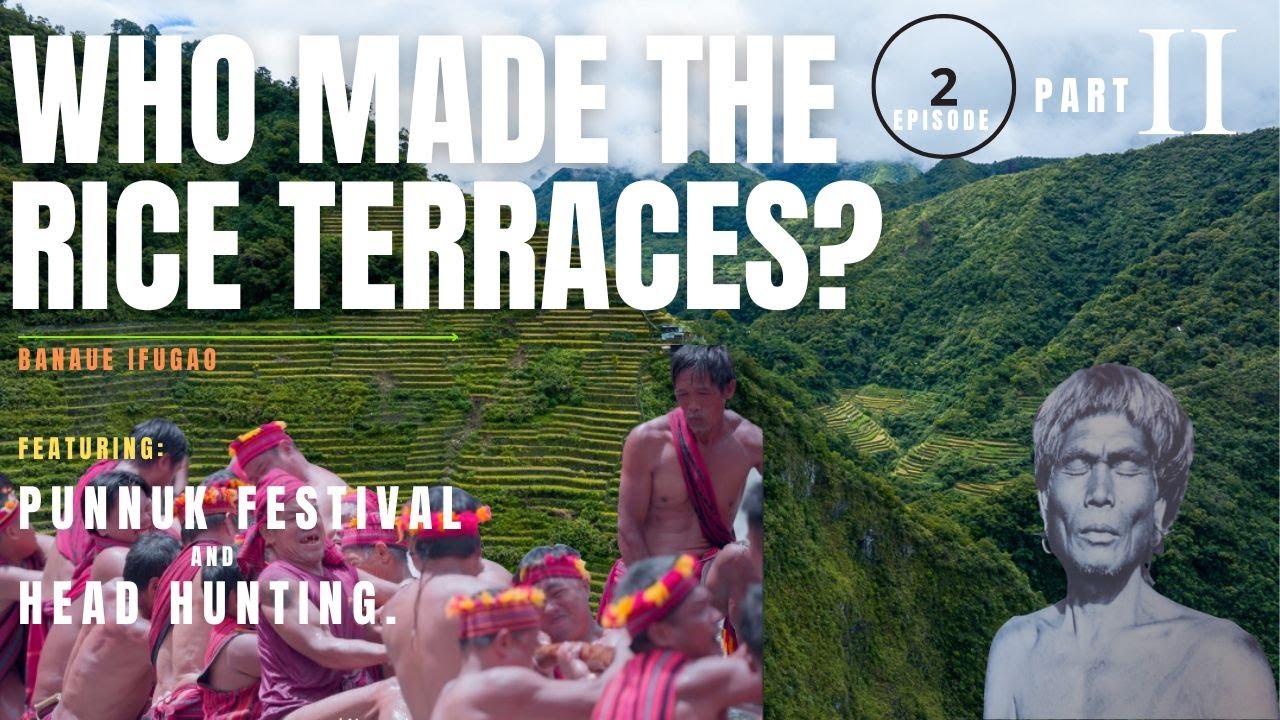1st Asian Cultural Heritage Conservation & Utilization – Team Tanglaw (Light to Guide One’s Path)
Summary
TLDRThe Ifugao Rice Terraces, a UNESCO World Heritage site, face threats from climate change, impacting the local culture and economy. Once a thriving agricultural community, the terraces now struggle with unpredictable weather, soil erosion, and a younger generation disinterested in farming. The community calls for sustainable tourism, government support for irrigation, and respect for their heritage to ensure the terraces' survival for future generations.
Takeaways
- 🌍 The world is changing rapidly, with climate change significantly impacting the environment and culture.
- 🏞️ The Rice Terraces of Ifugao, a UNESCO World Heritage Site, are at risk due to the effects of climate change.
- 🌾 These terraces were declared the 'Eighth Wonder of the World' in the 1960s and have been a significant cultural and economic asset for the local community.
- 📈 Tourism to the Rice Terraces increased in the 1980s and 1990s, but climate change threatens their sustainability.
- 🌡️ Local farmers have observed changes in temperature and weather patterns, affecting the cultivation cycle and rice quality.
- 🌧️ Climate change has led to unpredictable weather, causing difficulties for locals who rely on the Rice Terraces for their livelihood.
- 🏡 Traditional cultural practices and rituals have declined, and some native houses have been converted into businesses.
- 👵 Older generations express concern about the future of the Rice Terraces and the cultural heritage they represent.
- 🌱 The community calls for sustainable tourism and support for local businesses to help preserve the cultural heritage.
- 💡 There is a need for government focus on sustainable practices, such as improving irrigation systems, to protect the Rice Terraces.
- 🔄 The community advocates for regular funding and awareness campaigns to ensure the preservation of the Rice Terraces for future generations.
Q & A
What is the significance of the Rice Terraces in the Philippines?
-The Rice Terraces in the Philippines, particularly the Ifugao Rice Terraces, are significant as they are a testament to the ingenuity and cultural heritage of the Ifugao people. They were declared a World Heritage Site by UNESCO in 1995 for their unique agricultural practices and for being an outstanding example of human interaction with the environment.
Why are the Rice Terraces considered to be in danger?
-The Rice Terraces are considered to be in danger due to the negative impacts of climate change, which include unpredictable weather patterns, soil erosion, and reduced rice quality. These factors threaten the cultural, economic, and environmental stability of the region.
How have the local farmers responded to the effects of climate change?
-Local farmers have noticed changes in temperature and an increase in storms, which affect their agricultural practices. Despite not fully understanding the science behind climate change, they have adapted by altering their farming schedules and seeking temporary work in urban areas when crop damages occur.
What cultural changes have occurred in the Ifugao community due to external influences?
-The Ifugao community has experienced cultural shifts with the adoption of Christianity and other religions, leading to the discontinuation of traditional rituals. Additionally, some native houses have been converted into convenience stores to supplement income, reflecting changes in the community's way of life.
What was the 'second cropping' mentioned in the script, and why was it discontinued?
-The 'second cropping' refers to a practice where farmers would plant a second rice crop in a year. It was discontinued about 30 years ago, likely due to environmental and economic challenges, including the effects of climate change on the agricultural cycle.
How does the script suggest that sustainable tourism can help preserve the Rice Terraces?
-The script suggests that sustainable tourism can help preserve the Rice Terraces by promoting respect for the local culture and heritage, supporting local businesses, and advocating for policies that ensure regular funding and protection of the site.
What role does the government play in addressing the challenges faced by the Rice Terraces?
-The government is expected to play a crucial role by focusing on improving the irrigation system, which is vital for sustaining the rice fields, and by supporting policies that ensure the preservation of the cultural heritage and the economic well-being of the local community.
Why is it important for the youth to be interested in farming and preserving the Rice Terraces?
-It is important for the youth to be interested in farming and preserving the Rice Terraces to ensure the continuation of the cultural heritage and agricultural practices. This interest is essential for maintaining the economic prosperity of the region and for passing on traditional knowledge to future generations.
What is the significance of the Rice Terraces in the context of the Ifugao people's way of living?
-The Rice Terraces are deeply significant to the Ifugao people's way of living as they are not only a source of food and income but also a symbol of their cultural identity and a testament to their ancestors' wisdom in sustainable agriculture.
How can tourists contribute to the preservation of the Rice Terraces?
-Tourists can contribute to the preservation of the Rice Terraces by practicing responsible and sustainable tourism. This includes respecting local customs, supporting local businesses, and being mindful of the environmental impact of their visit.
Outlines

このセクションは有料ユーザー限定です。 アクセスするには、アップグレードをお願いします。
今すぐアップグレードMindmap

このセクションは有料ユーザー限定です。 アクセスするには、アップグレードをお願いします。
今すぐアップグレードKeywords

このセクションは有料ユーザー限定です。 アクセスするには、アップグレードをお願いします。
今すぐアップグレードHighlights

このセクションは有料ユーザー限定です。 アクセスするには、アップグレードをお願いします。
今すぐアップグレードTranscripts

このセクションは有料ユーザー限定です。 アクセスするには、アップグレードをお願いします。
今すぐアップグレード関連動画をさらに表示

SOTR | Second Episode | Who Made The Rice Terraces | Part 1 I

"NATIONAL TREASURES: A Journey Through History" (Ep. # 1) - Part 4 of 4

SOTR | Second Episode | Who Made the Rice Terraces | Part II |

The Culture of the Dogon - On View in Germany for the First Time | Arts 21

"LEGACY: Philippine World Heritage Sites" (Part 2 of 2)

Uncovering the Filipino heritage trail - life
5.0 / 5 (0 votes)
